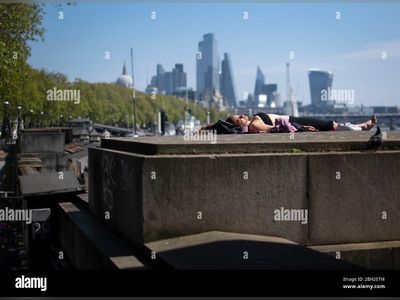
British Government Expresses Disappointment Over Israeli Entry Ban for Labour MPs
Two Labour MPs barred from Israel amid accusations of intended hate speech; political backlash ensues
The British Government has expressed disappointment regarding Israel's recent decision to deny entry to two Labour Members of Parliament (MPs), following accusations that they intended to "spread hate speech." The ministers involved, including Lilian Greenwood, the Future of Roads Minister, have voiced their discontent, emphasizing the importance of parliamentary trips to enhance understanding of foreign situations.
The MPs, Yuan Yang and Abtisam Mohamed, were reportedly on a trip to engage with humanitarian aid projects and observe conditions in the West Bank.
Greenwood noted, "We're really disappointed by that decision by the Israeli government," adding that the UK Foreign Secretary had also raised concerns about the incident.
In response to the accusations of hate speech, Greenwood contested that such claims were unfounded, stating, "There's a long history of British MPs traveling to all parts of the world to better shape their understanding of the situation on the ground...
All British MPs traveling should be treated with respect and dignity by the countries they're seeking to visit."
The incident has ignited tensions within the UK parliament, particularly between members of the Conservative and Labour parties.
Kemi Badenoch, a senior Conservative minister, criticized the Labour MPs for their perceived inability to comply with international regulations, describing it as "shocking" that they were barred from entry by another country.
Her remarks have drawn ire from Labour representatives, including Foreign Secretary David Lammy, who accused her of supporting a foreign government in undermining the responsibilities of British MPs.
According to statements made by the Israeli population authority, the decision to deny entry was based on suspicions that the MPs aimed to document Israeli security forces and promote anti-Israel rhetoric.
In their response, Yang and Mohamed emphasized their aim to assess the humanitarian situation on the ground and the importance of parliamentary visits for informed policy-making.
The Council for Arab-British Understanding (Caabu) and Medical Aid for Palestinians (Map) organized the delegation that included the two MPs and stated that they had informed the UK consul general in Jerusalem of their planned visit.
This incident marks another chapter in the ongoing discussions surrounding Israeli-British relations and the treatment of MPs engaging with controversial international narratives.
The political fallout continues as various parties express their positions on the matter, highlighting the complexities surrounding international diplomacy, national sovereignty, and the conduct of MPs abroad.
The MPs, Yuan Yang and Abtisam Mohamed, were reportedly on a trip to engage with humanitarian aid projects and observe conditions in the West Bank.
Greenwood noted, "We're really disappointed by that decision by the Israeli government," adding that the UK Foreign Secretary had also raised concerns about the incident.
In response to the accusations of hate speech, Greenwood contested that such claims were unfounded, stating, "There's a long history of British MPs traveling to all parts of the world to better shape their understanding of the situation on the ground...
All British MPs traveling should be treated with respect and dignity by the countries they're seeking to visit."
The incident has ignited tensions within the UK parliament, particularly between members of the Conservative and Labour parties.
Kemi Badenoch, a senior Conservative minister, criticized the Labour MPs for their perceived inability to comply with international regulations, describing it as "shocking" that they were barred from entry by another country.
Her remarks have drawn ire from Labour representatives, including Foreign Secretary David Lammy, who accused her of supporting a foreign government in undermining the responsibilities of British MPs.
According to statements made by the Israeli population authority, the decision to deny entry was based on suspicions that the MPs aimed to document Israeli security forces and promote anti-Israel rhetoric.
In their response, Yang and Mohamed emphasized their aim to assess the humanitarian situation on the ground and the importance of parliamentary visits for informed policy-making.
The Council for Arab-British Understanding (Caabu) and Medical Aid for Palestinians (Map) organized the delegation that included the two MPs and stated that they had informed the UK consul general in Jerusalem of their planned visit.
This incident marks another chapter in the ongoing discussions surrounding Israeli-British relations and the treatment of MPs engaging with controversial international narratives.
The political fallout continues as various parties express their positions on the matter, highlighting the complexities surrounding international diplomacy, national sovereignty, and the conduct of MPs abroad.









